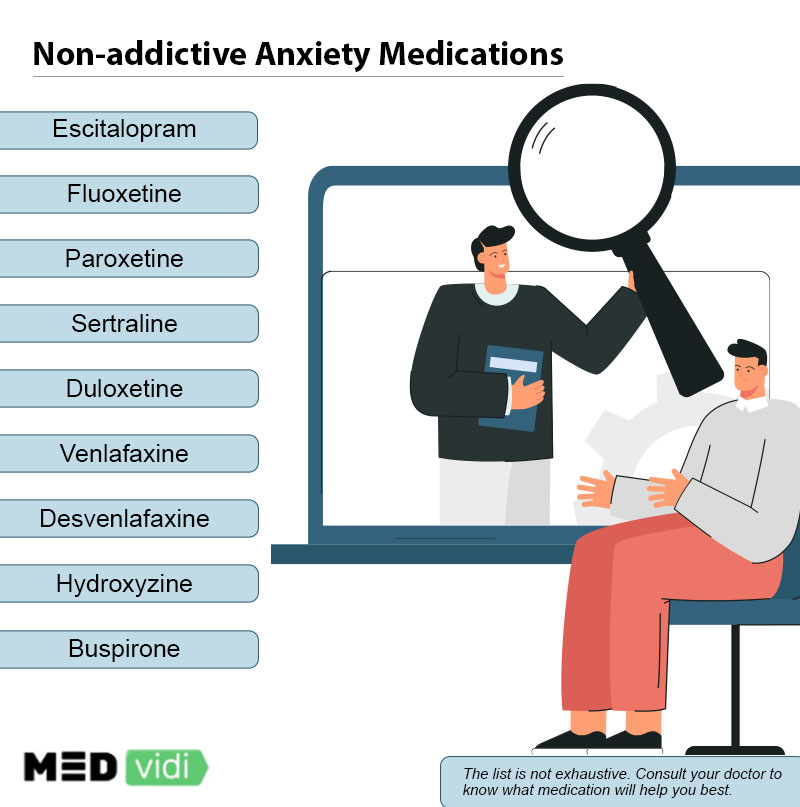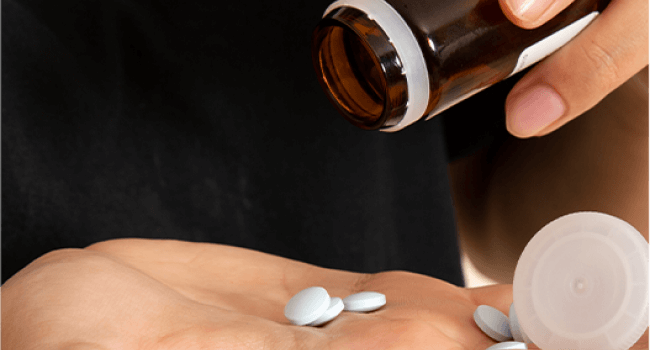Anti-anxiety medications are a broad group of drugs. Depending on the intensity and persistence of symptoms, they can be used for both short-term and long-term treatment. However, even though they lead to positive changes in one’s health, these drugs may cause side effects and other negative outcomes due to the addictive nature of some medicines.
Maybe you’re unsure about whether taking anxiety medications is the right decision. You can learn if anxiety meds are addictive or not by reading the most recent blog.
Can You Get Addicted to Anxiety Meds?
As the body’s nervous system fights anxiety, these drugs are designed to relax it. So,
Some anxiety meds are more habit-forming and have a higher addiction risk than others. For instance, benzodiazepines — drugs for severe anxiety and panic episodes. People who take benzos are at a more considerable
Gamma-aminobutyric acid (GABA), a neurotransmitter that slows down the central nervous system, is made more effective by benzos. This has tranquil and soothing effects that reduce anxiety. Although benzodiazepines are typically seen as safe and helpful in the short term, using them without proper guidance can develop into a habit in the long run.
If you feel like you are getting addicted to your anxiety medication, reach out to your healthcare provider immediately
Addictive Anxiety Medication

Anti-anxiety medications come in a wide variety but mentioned below are some of the most abused and frequently given ones. They are also considered fast-acting anxiety medications because they have a rapid onset of action, typically providing relief within 30 to 90 minutes.
- Alprazolam (Xanax). It is a
Schedule IV[3] medication and one of the most widely prescribed benzodiazepines in the US. It treats panic disorders, phobias, and generalized anxiety disorder. This central nervous system depressant leads to tranquility and relaxation. - Clonazepam (Klonopin). This prescription benzodiazepine used to treatment for panic attacks, anxiety, and seizures. It is a Schedule IV medication that produces sensations of serenity and relaxation but may also cause exhilaration and hallucinations. Even if used for a short time, it can be addictive.
- Diazepam (Valium). It is one of the five benzodiazepines that are prescribed the most frequently in the United States, according to the
DEA[4] . It is a Schedule IV medication that is used to manage seizures, alcohol withdrawal, and anxiety due to its calming effects. The drug’s sedative effects can be felt within 30 to 60 minutes of taking a dose, normally lasting 6 to 8 hours. When Valium is overused or taken with other drugs or alcohol, it can be considerably more harmful and even cause an overdose because it is physically and mentally addicting. - Lorazepam (Ativan). It is a “medium-duration medication” for anxiety associated with depressive symptoms that is often administered for a maximum of four months due to its high potency for addiction. Never take more Ativan than recommended, and don’t take it longer than instructed. If you do, you risk misusing the substance and developing physical or psychological dependence.
Symptoms of Getting Addicted to Anxiety Meds
The following are some indications of an anxiety medication addiction:
- Taking more than the recommended dosage to feel the needed effect.
- Acquiring additional medication through illicit means, such as through numerous prescriptions or a dealer.
- Experiencing withdrawal effects if the medication is not taken.
- Feeling “odd” before taking the medication.
- Having a detrimental impact on one’s job, life, and activities due to medication.
Non-addictive Anxiety Medication
Some effective anti-anxiety drugs don’t have an addictive potential because they don’t induce euphoria. The other medications for anxiety that carry a minimal risk of addiction than benzodiazepines include the following anxiety medications:
- SSRIs. Selective serotonin reuptake inhibitors are a popular type of
antidepressants[5] used to treat anxiety and depression effectively. They function by raising the mood-regulating chemical serotonin. Escitalopram, fluoxetine, paroxetine, and sertraline are a few medicines that fit this description. SSRIs often have few severe adverse effects and don’t establish addiction. - SNRIs. Like SSRIs, norepinephrine reuptake inhibitors also raise serotonin along with norepinephrine levels, raising alertness and arousal and altering a person’s mood and ability to concentrate. The drugs duloxetine, venlafaxine, and desvenlafaxine are examples of this type.
- Vistaril (Hydroxyzine): Temporarily managing anxiety is made exceedingly successful by the quick-acting medication
hydroxyzine[6] . Sedation is occasionally a side effect, but it lessens as you continue to use it. - Buspar (Buspirone): This non-addictive anxiety drug is comparable to an SSRI because it boosts serotonin-related chemical messengers. Buspar only affects one particular region of your brain since it only targets one subtype of the serotonin receptor. There are greater side effects as SSRIs hit more receptors. Buspar targets one, so fewer side effects are associated with it.
Wrap Up
Some anxiety medications are addictive. Regardless of medication abuse or addiction symptoms, you can receive the proper treatment to overcome anxiety. You could find yourself on a path to recovery through guided treatments and focused therapy regimens with the help of MEDvidi doctors.













